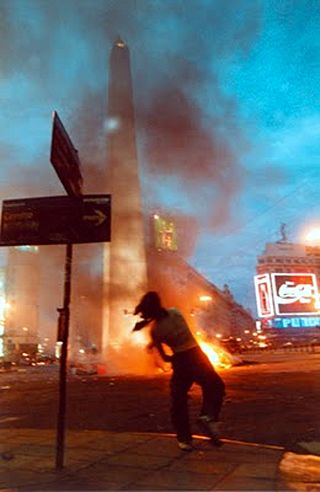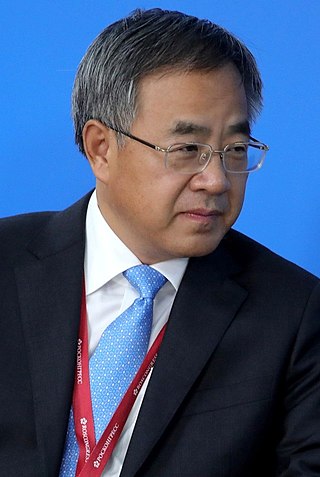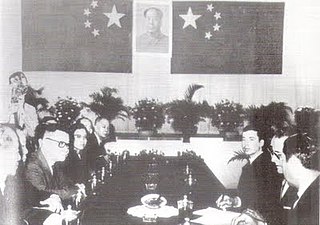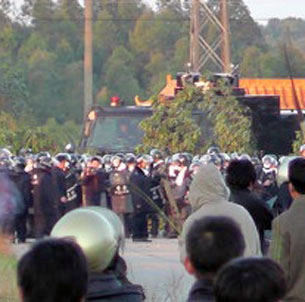
The Tiananmen Square protests, known in China as the June Fourth Incident were student-led demonstrations held in Tiananmen Square, Beijing, China, lasting from 15 April to 4 June 1989. After weeks of unsuccessful attempts between the demonstrators and the Chinese government to find a peaceful resolution, the Chinese government declared martial law on the night of 3 June and deployed troops to occupy the square in what is referred to as the Tiananmen Square massacre. The events are sometimes called the '89 Democracy Movement, the Tiananmen Square Incident, or the Tiananmen uprising.

The February 28 incident was an anti-government uprising in Taiwan that was violently suppressed by the Kuomintang–led nationalist government of the Republic of China (ROC). Directed by provincial governor Chen Yi and president Chiang Kai-shek, thousands of civilians were killed beginning on February 28, 1947. The incident is considered to be one of the most important events in Taiwan's modern history and was a critical impetus for the Taiwan independence movement.

The December 2001 crisis, sometimes known as the Argentinazo, was a period of civil unrest and rioting in Argentina, which took place during December 2001, with the most violent incidents taking place on 19 and 20 December in the capital, Buenos Aires, Rosario and other large cities around the country. It was preceded by a popular revolt against the Argentine government, rallying behind the motto "All of them must go!", which caused the resignation of then-president Fernando de la Rúa, giving way to a period of political instability during which five government officials performed the duties of the Argentine presidency. This period of instability occurred during the larger period of crisis known as the Argentine great depression, an economic, political, and social crisis that lasted from 1998 until 2002.

The 1966 Hong Kong riots, also known as the 1966 Star Ferry riots, were a series of disturbances that took place over four nights on the streets of Kowloon, Hong Kong in the spring of 1966. The riots started as peaceful demonstrations against the British colonial government's decision to increase the fare of Star Ferry foot-passenger harbour crossing by 25 percent.

Hu Chunhua is a Chinese politician. He currently serves as Vice Chairman of the National Committee of the Chinese People's Political Consultative Conference since 2023. From 2018 to 2023, he served as Vice Premier of the State Council of the People's Republic of China.
Duan Yihe was a Chinese politician and a senior lawmaker in Jinan, the capital of Shandong Province. He was a member of the 10th National People's Congress and served as Chairman of the Standing Committee of the Jinan Municipal People's Congress from 2001 to 2007. Duan, together with his nephew-in-law, was executed in September 2007 for murdering his mistress, who was killed by a car bomb. It is considered one of the most shocking crimes involving a Chinese official. Duan was the sixth provincial-ministerial level official to be executed in China since 1978.

The 12-3 incident was a series of political demonstrations and riots against Portuguese colonial rule in Macau which occurred on December 3, 1966. The incident, inspired by the Cultural Revolution in the People's Republic of China, occurred as a direct response to a violent police crackdown by colonial authorities against local Chinese protesters demonstrating against corruption and colonialism in Macau.
The 2008 Weng'an riot was a riot on June 28, 2008, involving tens of thousands of residents in Weng'an County, Qiannan Buyei and Miao Autonomous Prefecture, in the Guizhou province of Southwest China. Rioters smashed government buildings and torched several police cars to protest against an alleged police cover-up of a girl's death.
The 2008 Longnan riot was a protest that turned into a riot involving thousands of people in Longnan, Gansu, People's Republic of China.
The Deng Yujiao incident occurred on 10 May 2009 at a hotel in Badong County, Hubei. Deng Yujiao, a 21-year-old pedicure worker, tried to rebuff the advances of Deng Guida, director of the local township business promotions office, who had come to the hotel seeking sexual services. She allegedly stabbed her assailant several times trying to fight him off, resulting in his death. Badong County police subsequently arrested Deng Yujiao, charged her with homicide, and refused to grant her bail.
A drug lord, drug baron, kingpin, or lord of drugs is a type of crime boss, who is in charge of a drug-trafficking network, organization, or enterprise.
The Shishou Incident was a popular protest and riot in the city of Shishou, Hubei Province, in central China between June 19–21, 2009. The protests were the result of dubious circumstances surrounding the death of 24-year-old chef Tu Yuangao (涂遠高) of the local Yonglong Hotel (永隆大酒店).
A series of violent riots over several days broke out on 5 July 2009 in Ürümqi, the capital city of the Xinjiang Uyghur Autonomous Region (XUAR), in northwestern China. The first day's rioting, which involved at least 1,000 Uyghurs, began as a protest, but escalated into violent attacks that mainly targeted Han people. According to Chinese state media, a total of 197 people died, most of whom were Han people or non-Muslim minorities, with 1,721 others injured and many vehicles and buildings destroyed. Many Uyghurs disappeared during wide-scale police sweeps in the days following the riots; Human Rights Watch (HRW) documented 43 cases and said figures for real disappearances were likely to be much higher.
The Tonghua Iron and Steel Group riot was a riot incident that took place in Tonghua, Jilin, People's Republic of China on July 24, 2009. Angry workers rioted after news of a major company layoff. About 100 people were injured in the clash including a corporate executive who was beaten to death in the event.
In September 2009, Ürümqi, the capital of the Xinjiang Uyghur Autonomous Region in the People's Republic of China, experienced a period of unrest in the aftermath of the July 2009 Ürümqi riots. Late August and early September saw a series of syringe attacks on civilians. In response to the attacks, thousands of residents held protests for several days, resulting in the deaths of five people. In addition, the arrest and beating of several Hong Kong journalists during the protests attracted international attention.

The Wukan protests, also known as the siege of Wukan, was an anti-corruption protest that began in September 2011, and escalated in December 2011 with the expulsion of officials by villagers, the siege of the town by police, and subsequent détente in the village of Wukan, in the east of Guangdong province. The villagers rose up again in June 2016, but were again suppressed. The most recent rounds of clashes were in September 2016, when the former village leader Lin Zulian was sentenced to jail. The clashes were suppressed.
Large-scale incidents of civil disobedience in the People's Republic of China are described by the Chinese government as "mass incidents".

Corruption in Myanmar is an extremely serious problem. Owing to failures in regulation and enforcement, corruption flourishes in every sector of government and business. Many foreign businesspeople consider corruption "a serious barrier to investment and trade in Myanmar." A U.N. survey in May 2014 concluded that corruption is the greatest hindrance for business in Myanmar.
The May 24 incident, also called the Liu Ziran incident (劉自然事件) and the Reynolds riot, was a 1957 international incident between the United States and Taiwan (ROC) that started over the killing of an ROC national by an American military officer and the subsequent acquitted court-martial conducted by U.S. military personnel in Taiwan, resulting in protests that culminated in separate mob attacks on the then-U.S. Embassy, the United States Information Service buildings and a police station in Taipei.

Corruption in Bulgaria has decreased in recent years, after a series of reforms implemented through EU guidance. Among recent improvements, amendments to the constitution in 2015 brought about a reform of the Supreme Judicial Council and a stronger judicial inspectorate. Furthermore, the broader legislative framework has seen a number of reforms over the years, in particular through the amendments of the Judicial System Act in 2016 and of the Criminal Procedure Code in 2017.








